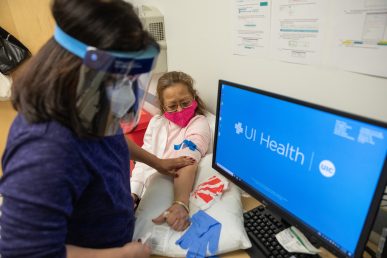National study of long COVID-19 defines illness

Long COVID-19 is a “syndrome of syndromes” and more likely to occur in unvaccinated patients and people infected before the 2021 omicron variant, according to a new study of nearly 10,000 patients published in JAMA.
The RECOVER initiative is a nationwide collective of researchers studying patients with long COVID, where symptoms last for months or years beyond the original infection with the virus. The Illinois arm of the study, a network of health systems and community-based organizations known as ILLInet, is led by UIC physicians Dr. Jonathan Klein and Dr. Jerry Krishnan.
ILLInet was one of several sites that contributed data to the new study, which assessed the symptoms of 8,646 patients who experienced a COVID-19 infection. They found 12 symptoms more prevalent in long COVID: post-exertional malaise, fatigue, brain fog, dizziness, gastrointestinal symptoms, heart palpitations, issues with sexual desire or capacity, loss of smell or taste, thirst, chronic cough, chest pain and abnormal movements.
Based on the findings, the study created a scoring system that physicians can use to identify long COVID in their patients.
The data provides an important baseline for the RECOVER study as it searches for the biological causes of long COVID and tests treatments in upcoming clinical trials.
Categories
